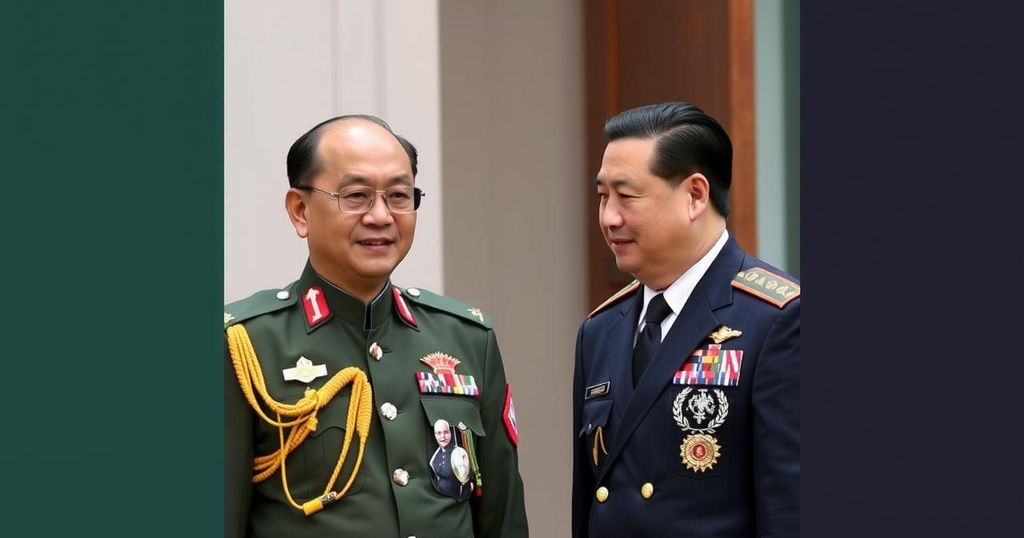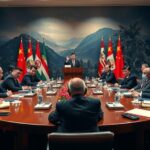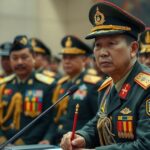Myanmar’s Junta Chief Makes Landmark Visit to China Amid Ongoing Turmoil
Senior General Min Aung Hlaing of Myanmar, facing international isolation, undertakes his first visit to China post-coup, aiming to discuss future elections amid regional instability. Chinese officials, wary of the ramifications of the ongoing civil conflict on their interests, seek to stabilize relations despite reservations about the junta leader. The meeting underscores China’s strategic imperative to maintain stability along its borders while addressing the complexities of Myanmar’s internal strife.
Myanmar’s junta leader, Senior General Min Aung Hlaing, embarked on his first visit to China since seizing power in a coup nearly four years ago, marking a significant diplomatic encounter. His arrival in Kunming, the capital of Yunnan province, comes amid strained relations, as Chinese authorities have been wary of Min’s contentious stance towards their relationships with ethnic armed groups in Myanmar. The visit aligns with China’s intentions to discuss the possibility of fresh elections in 2025, hoping that a new military commander might mitigate the ongoing civil unrest that threatens Chinese infrastructure in the region. Chinese leaders have expressed reservations about Min Aung Hlaing due to his criticism of their support for armed factions within Myanmar. The escalating civil conflict not only poses a risk to Chinese investments but also threatens to increase the refugee crisis along their shared border. Despite their reluctance to openly embrace him, the visit underlines China’s desire to stabilize the situation in Myanmar and avoid a regime collapse. By bringing Min to Kunming, the Chinese government aims to assert its influence and push for political resolutions that could lead to relative stability in the bordering nation, vital for their regional interests.
The political situation in Myanmar has been precarious since the military junta seized power in February 2021, leading to widespread civil unrest and conflict with various ethnic groups. Min Aung Hlaing’s administration has been largely isolated on the global stage, receiving minimal international recognition or support, particularly from neighbouring countries like China. This visit indicates a complicated relationship, where China, despite its reservations regarding the junta, is keen on preventing further destabilization in Myanmar that could impact its economic and security interests in the region. Understanding this background is crucial in grasping the nuances of Min Aung Hlaing’s diplomatic efforts and China’s strategic considerations.
In conclusion, Senior General Min Aung Hlaing’s visit to China signifies a pivotal moment for Myanmar’s junta leader, who faces international isolation due to his controversial leadership. While Chinese officials are hesitant admirers of his government, they recognize the necessity of engaging with him to enforce stability in Myanmar amid civil upheaval. As China seeks to mitigate the potential fallout from the ongoing conflict, there remains cautious optimism that collaborative dialogues may lead to a more manageable political landscape, albeit fraught with challenges.
Original Source: www.hindustantimes.com








Post Comment